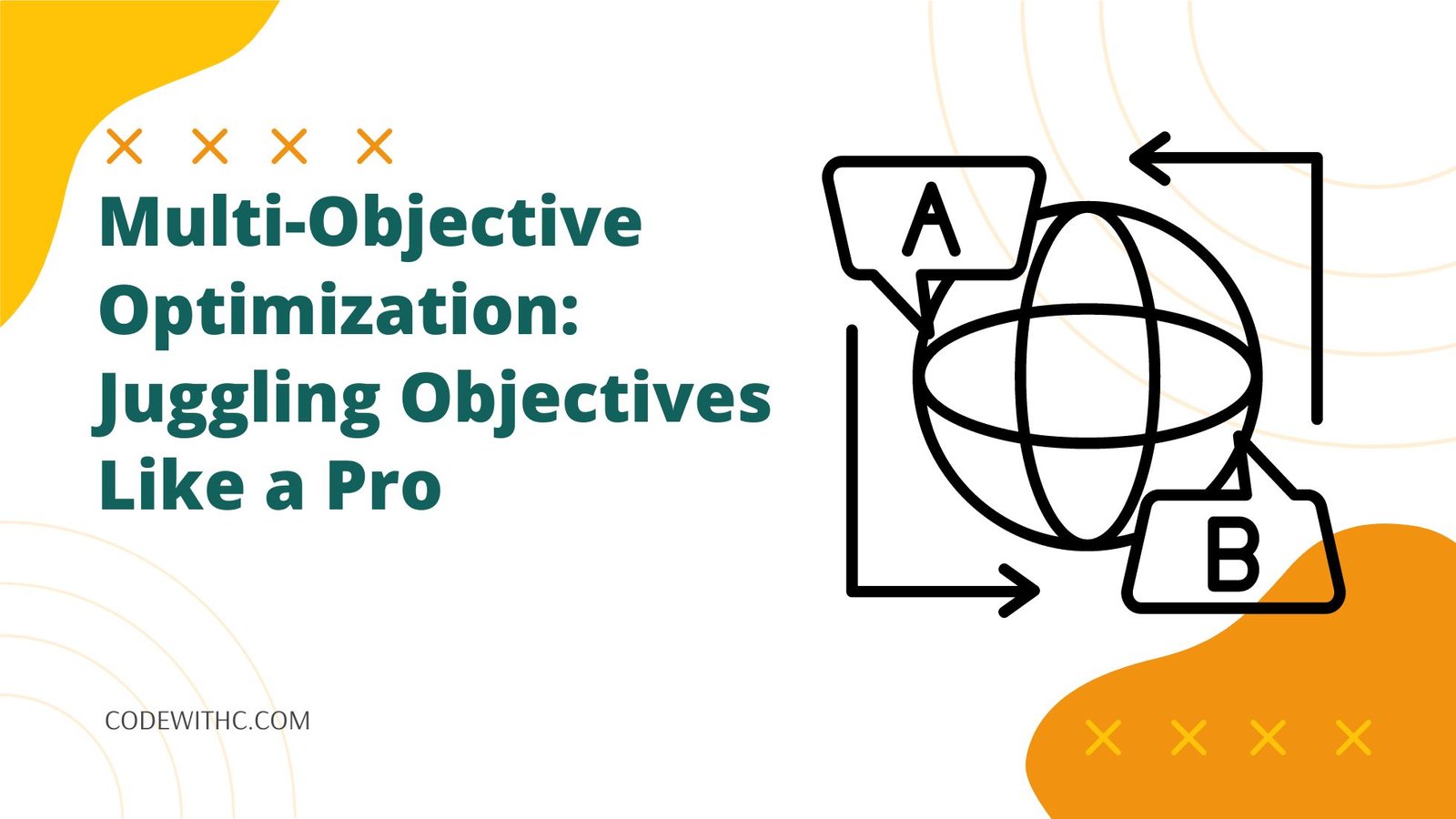Intro – Multi-Objective Optimization
Ever tried playing hacky sack? A bunch of us were in the park last weekend, just kicking around this tiny bag in a circle. It’s not just about keeping the sack off the ground; you gotta do it with style, right? So, here I am, trying to balance accuracy, flair, and not tripping over my own feet. It hit me then—this is pretty much what Multi-Objective Optimization feels like in the machine learning world. You’re not optimizing for just one thing; you’ve got multiple balls in the air. And man, does it get complicated!
So picture this: It’s a sunny Saturday afternoon, and I’m chilling at the park with a bunch of pals. You know, one of those days where the sky’s so blue it looks like a toddler went crazy with a Crayola. ?️ We’re in this circle, engrossed in a game of hacky sack. The goal’s simple: keep that little beanbag from touching the ground. But man, the dynamics are anything but simple.
I’m there, right, trying to land a perfect stall on my shoe, and I realize I’m not just thinking about keeping the sack airborne. My mind’s juggling—literally—like three different things at once. I’ve gotta aim right, add some flair with a trick or two, and for the love of all things holy, not trip and make a fool of myself. Each kick, each stall, and each pass is a delicate balance of precision, style, and, well, not messing up.
And boom! It hits me like a ton of bricks. This is pretty much a mirror image of Multi-Objective Optimization in machine learning. You can’t just focus on one thing; you’ve got a bunch of objectives all vying for your attention. It’s like each of them is screaming, “Hey, look at me!” And here you are, trying to keep them all happy without dropping the ball—or in my case, the hacky sack.
So why should you care about Multi-Objective Optimization? Well, if you’ve ever found yourself stuck between a rock and a hard place, trying to improve your model’s accuracy without sacrificing interpretability or spending a gazillion compute cycles, then buddy, you’re in for a treat. We’re diving headfirst into the chaotic, perplexing, but utterly fascinating world of juggling multiple objectives in machine learning. Trust me, by the end of this, you’ll either be a pro juggler or at least, have mad respect for the art of balancing complex problems. ?♂️
The Struggle with Single-Objective Optimization
Look, in a perfect world, you’d just have one goal and go all out to achieve it. But let’s get real; life’s messier than a teenager’s bedroom.
The Limitations
If you’re solely focused on, say, minimizing loss, you might end up with a model that’s overfitting like a pair of skinny jeans after Thanksgiving dinner.
Multi-Objective Optimization: The Circus Act
Here, you’re juggling multiple objectives—accuracy, precision, recall, and maybe even computational efficiency.
from pymoo.optimize import minimize
from your_problem import YourProblem, YourProblemConstraints
problem = YourProblem()
constraints = YourProblemConstraints()
res = minimize(problem,
constraints,
# ... more parameters here
)
Code Deets
In this Python example, we’re using the pymoo library for multi-objective optimization. YourProblem would be your custom problem class, and YourProblemConstraints would handle any constraints you’ve got.
Expected Output
You’ll get a set of solutions that represent the best compromises among your objectives. No silver bullets here, folks.
Real-World Applications: It’s Everywhere!
From finance portfolios to recommendation systems, the applications are as endless as a Netflix binge session.
Extended Closing: The Balancing Act
Well, how was that for a whirlwind tour? Multi-Objective Optimization is like playing 3D chess while riding a unicycle. It’s easy to get overwhelmed, but that’s where the fun lies, doesn’t it? The moment you find that sweet spot between conflicting objectives is nothing short of exhilarating. It’s like hitting a hacky sack trick shot that you never thought you could pull off.
So, what’s your next move? Ready to plunge into this juggling act or still wrapping your head around it? Either way, remember: it’s not about perfection; it’s about balance.
In closing, if you’ve made it this far, give yourself a pat on the back. You’ve just dived deep into one of the most intricate topics in machine learning. So keep questioning, keep coding, and most importantly, keep juggling those objectives!







